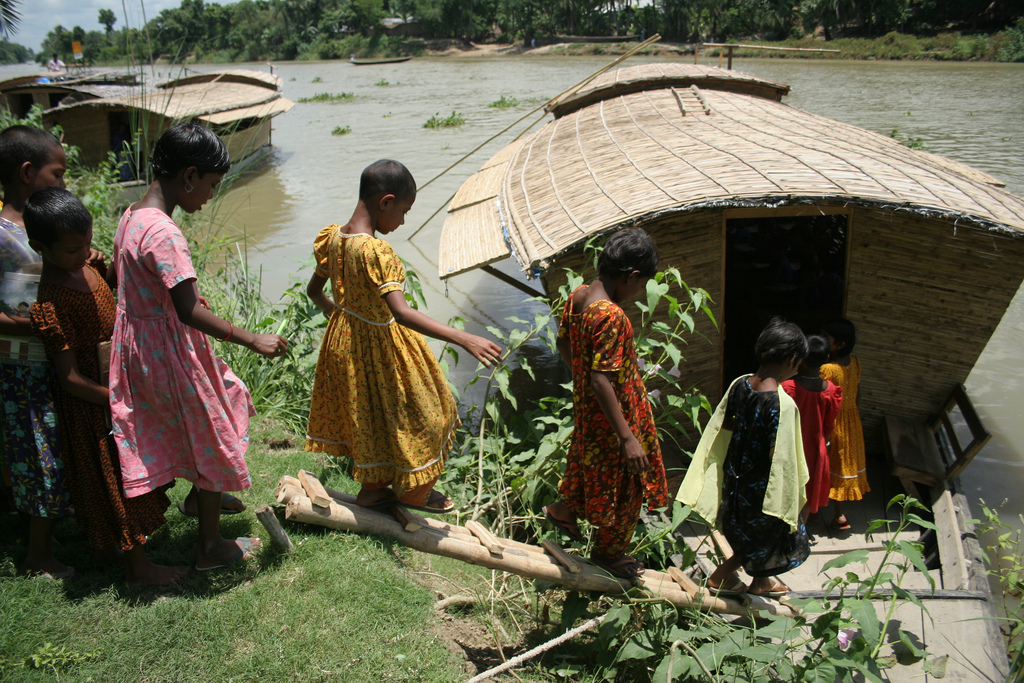By Sara Chatterjee
While the definition of “social enterprise” is somewhat debated, it is generally thought of as “business with a twist” – that is, business whose underlying mission is social good. The model (which could be for-profit, or non-profit) challenges the notion that you are either individualistic and want to make money, or you are an empty-pocketed altruist who wants to change the world. Some have welcomed social enterprise for its inclusive, innovative and dynamic approach that often turns traditional global development methods on their heads. At the same time, social enterprise has also been vociferously criticized for being too superficial, and not engendering genuine systemic change. The one-for-one concept made famous by Toms Shoes, for example, has been attacked for not adequately addressing the glaring underlying problem that it highlights: poverty.
However, the hugely different missions and approaches of social enterprises all over the world make it difficult to adopt an overall value judgment on their relevance and success. One cannot simply dismiss the one-for-one concept, for example, as being a mere marketing gimmick or, more generally, as missing the point. Consider Baby Hero, a Hong-Kong based social enterprise that sells organic clothes for babies in support of maternal and infant health in Pakistan. Its founders, Samar Shaheryar and Alicia Wieser, have partnered with Sick Kids Hospital in Toronto, and give a medical kit to a woman in need, for each item they sell. For a region in which an overwhelmingly large number of mothers give birth at home – and maternal and infant mortality rates remain shockingly high – Baby Hero not only respects traditional norms, but also manages to make giving birth safer for both mothers and their babies.
In many developing countries, local social enterprises have also been able to fill the gap that the market, and, often, inadequate state policies, have left open. In India, for example, the autorickshaw sector, which developed in the ‘50s, has always been largely unorganized, which has meant trouble for both commuters and drivers. Anybody familiar with South Asia will know the feeling of being turned down by an autorickshaw driver, either because he is unlikely to get another fare at your destination, or because you disagree on the price he quotes (which is inevitably higher than what the meter would show). Organizations like Autowale in Chennai, and mGaadi in Bangalore, have been able to create a centralized autorickshaw service in their respective cities. The system allows customers to order an autorickshaw in advance, and also maps out potential routes for the drivers, for their pick-ups to be maximized. Undeniably, creating a centralized network is a safety net in itself, and Autowale is looking into the possibility of providing insurance for its auto-drivers, who are extremely vulnerable in the dense and unpredictable traffic that characterizes the region.
Indeed, community is central to social enterprises all over the world, starting with the basic idea that social entrepreneurship is itself accessible to everyone, with the help of everyone else. Combining market-matching and community-creation, newly-launched ImpactFlow claims that you don’t need to be a billionaire to be a philanthropist. ImpactFlow has created a website that matches potential donors to companies and non-profits, and – unlike traditional crowdfunding platforms – seeks to establish a more lasting relationship between donors and organizations. The idea is to create greater dialogue around the philanthropic process, and to encourage businesses to execute true corporate-giving strategies, rather than a one-time CSR campaign. They also have an extremely active blog which features expert advice to companies, and also highlights the work of local non-profits. Indeed, a huge part of inspiring creative initiatives is highlighting the work of people who do the same. Paris-based Sparknews, for example, partnered with 40 media outlets in 40 different countries this year to produce an “Impact Journalism Day” supplement, highlighting innovative solutions to social problems around the world, and the people behind them.
At Sciences Po, social enterprise is also gaining ground, with organizations like Imp!Act providing training programs for prospective social innovators, who want to do something but aren’t quite sure how to go about it. More concrete projects exist, too – the Sciences Po incubator includes start-ups like Je Vis Mieux, a social enterprise that helps companies cater to low-income families through appropriately-priced discount coupons. And don’t forget the student-run Cafés at 28 Rue des St Pères that promotes fairtrade and organic products at affordable prices. The bottom line is that social enterprise isn’t a fad. Ultimately, it will certainly not replace development aid, government welfare programs or even the charity sector, but its lack of dependency on external funds and its commitment to trying something new definitely have their place in global development strategies.
Featured Image: Young girls board a riverboat library in Bangladesh. Credit: Gates Foundation, Flickr CC. License available here.

